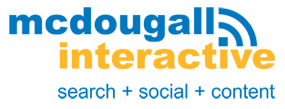 Facebook added new features and changed its news feed algorithm again. But that shouldn’t come as a surprise in light of competition from Snapchat and the way people are using their platform.
Facebook added new features and changed its news feed algorithm again. But that shouldn’t come as a surprise in light of competition from Snapchat and the way people are using their platform.
In this article, I will detail several new changes to Facebook implemented this year and how that affects your business’s online authority and online engagement efforts.
5 New Changes to Facebook that Affect Regular Users and Business Owners
1. Improved Tracking for Facebook Ads
Facebook’s analytics tool now gives advertisers the option to track page reactions and shares.
Advertisers can also track activity within their page. For instance, advertisers can verify what a visitor does after liking an item or URL on their page. New changes to Facebook’s omnichannel analytics will show them if said visitor views the same item on their linked website, or purchases it on the app connected to their Facebook page.
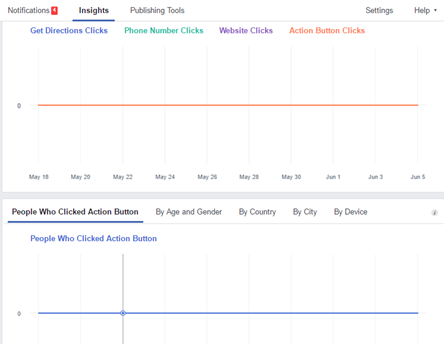
You can also filter where those clicks came from to learn more about your audience.
The results of boosted posts also got a design overhaul.
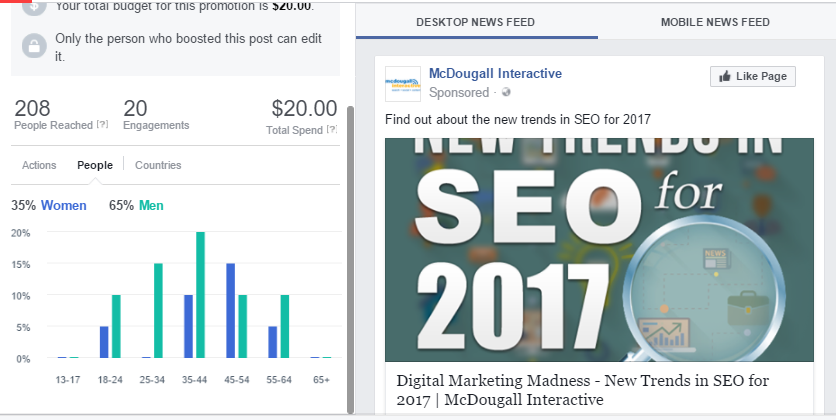
2. Dynamic Ads with Image Carousel
Facebook is also an advertising company, so it’s not surprising to see new changes to Facebook in terms of ad types and targeting.
Facebook has long had the power to track what users do outside of their website or app. Now they’re leveraging this power to help advertisers create re-marketing ads based on your previous clicks and website visits.
Let’s say you browsed an online clothing store for some polo shirts. Next time you visit Facebook, you could see an ad from the same clothing store with several pictures of the shirts you viewed in a photo carousel or gallery.
Because of this update, advertisers can now show up to 20 images for one item using the carousel ad format. This feature isn’t limited to clothing or tangible products; it can be used for tours, recipes, e-books, and more.
3. Pre-Approval Membership Request Questionnaire for Facebook Groups
Before, an interested member can just click the “Request to Join” link on a Facebook group, and then an admin or the group’s owner can approve or deny that request, not knowing anything about the applicant’s intention.
Group owners no have more power in filtering who they want to approve as members. New changes to Facebook Groups allow admins to ask up to three questions to every person who requests to join their group.
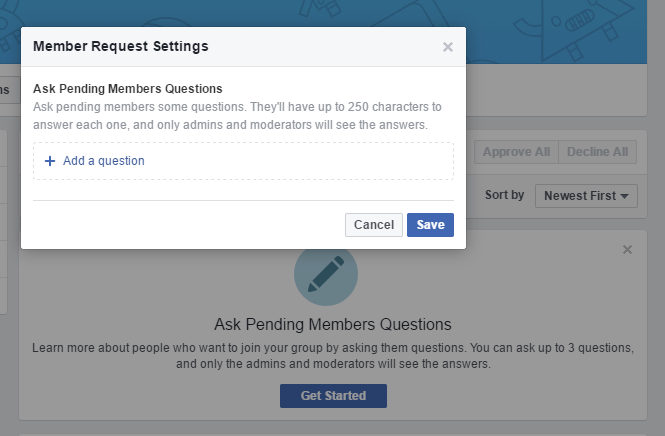
You can use these questions to screen potential members to ensure they’re not spammers and that they’d be a good fit for your group’s mission and existing members. The questions can also be used to gather information about their interests and challenges, so you can use these as discussion topics later.
Of course, the applicant’s privacy is protected as only the group owner or admins can see their answers.
4. New Facebook Pages
Late last year, Facebook added new features for Pages that allows their visitors to set an appointment, buy an item, order food, get a quotation, or call their number.
Yes, these are minor features, but it’s a much awaited update for page owners, especially those of brick and mortar businesses who want to maximize their Facebook ROI. With these features, Facebook can cut the number of clicks it takes to complete a sale or set up an appointment—key functions businesses need to generate revenue.
Here’s an example from Bank of America’s Facebook page. See the appointments section? Their clients can now set up an appointment straight from their page.
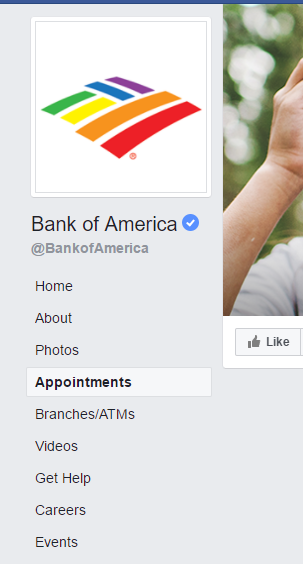
Here’s what you’ll see if you click that link. Notice you’ll be redirected to another page within Facebook, specifically an app Bank of America created for their Facebook page.
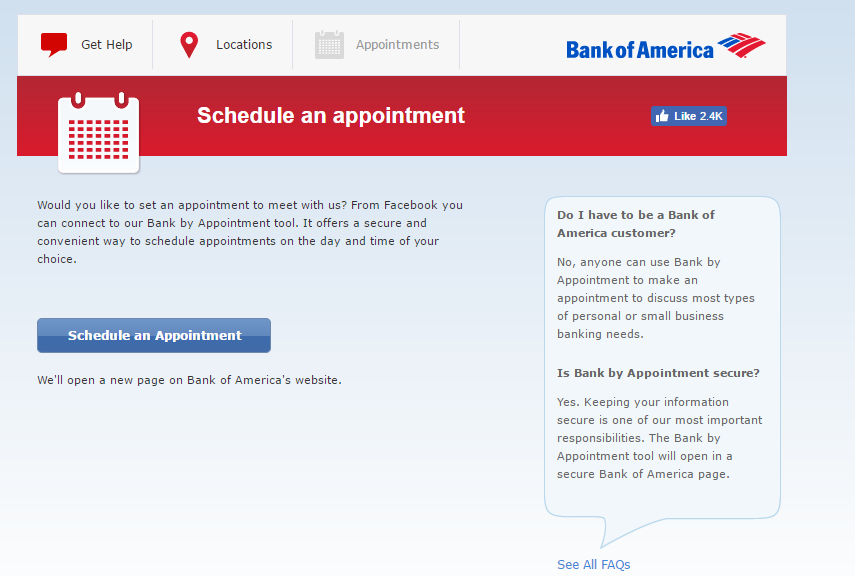
5. Stringent Measures against Clickbait and Fake News
This started in 2014 when Facebook made it clear they don’t like clickbait articles with exaggerated headlines or missing information. They updated the algorithm in 2015 to reduce the visibility of publishers that pried on users with headlines like “You’ll Never Believe….”
Before, Facebook can only decrease the reach of specific pages or publishers that used clickbait headlines. Now they can down rank or decrease the news feed reach and referral traffic of individual posts deemed as clickbait.
In addition, Facebook can also detect clickbait headlines in multiple languages, including Arabic, German, French, Spanish, Thai, Portuguese, and Vietnamese.
Facebook is also aggressively fighting against fake news, after facing backlash from of users and several media outlets following the last election. So far, their security team has published a report on how several ‘actors’ have managed to spread misleading articles during the last election.
In terms of the platform changes, Facebook recently pinned a post atop everyone’s news feed. The topic? Tips on how to spot fake news. To avoid the spread of misinformation, they now warn users of “disputed” content before they share it with their friends.
A Powerful Platform for Good and Bad Information
It doesn’t matter if they deny it or accept it, Facebook is both an advertising company and media outlet now. That’s why they are getting stringent on what posts reaches a huge audience, and what dies down in the archives.
On the bright side, Facebook advertisers, business owners, and community managers have more tools to improve their engagement and conversion rates. It might take some time to get used to, but the new features are worth learning as you build your authority.
